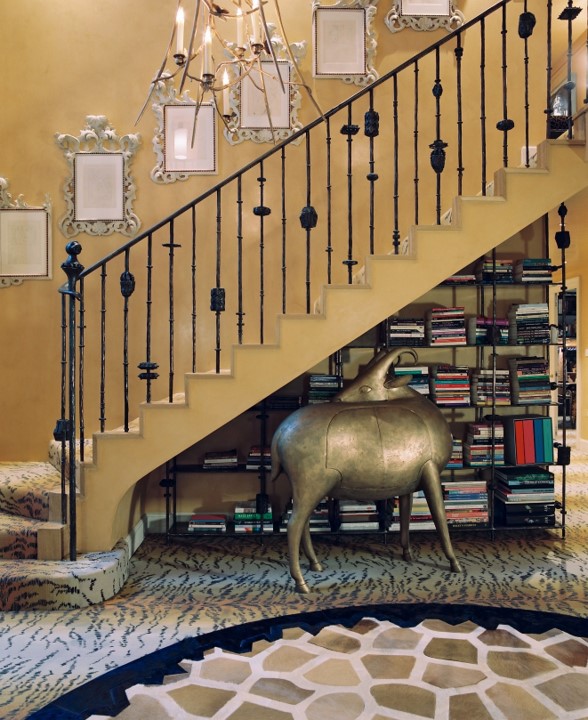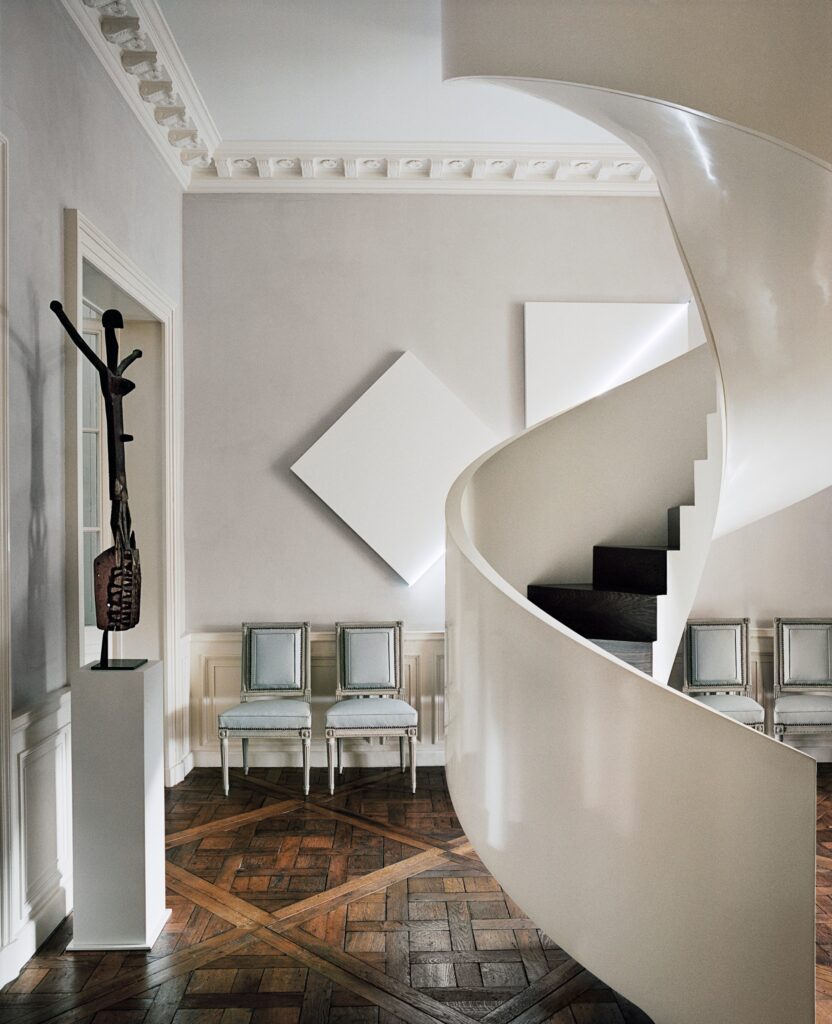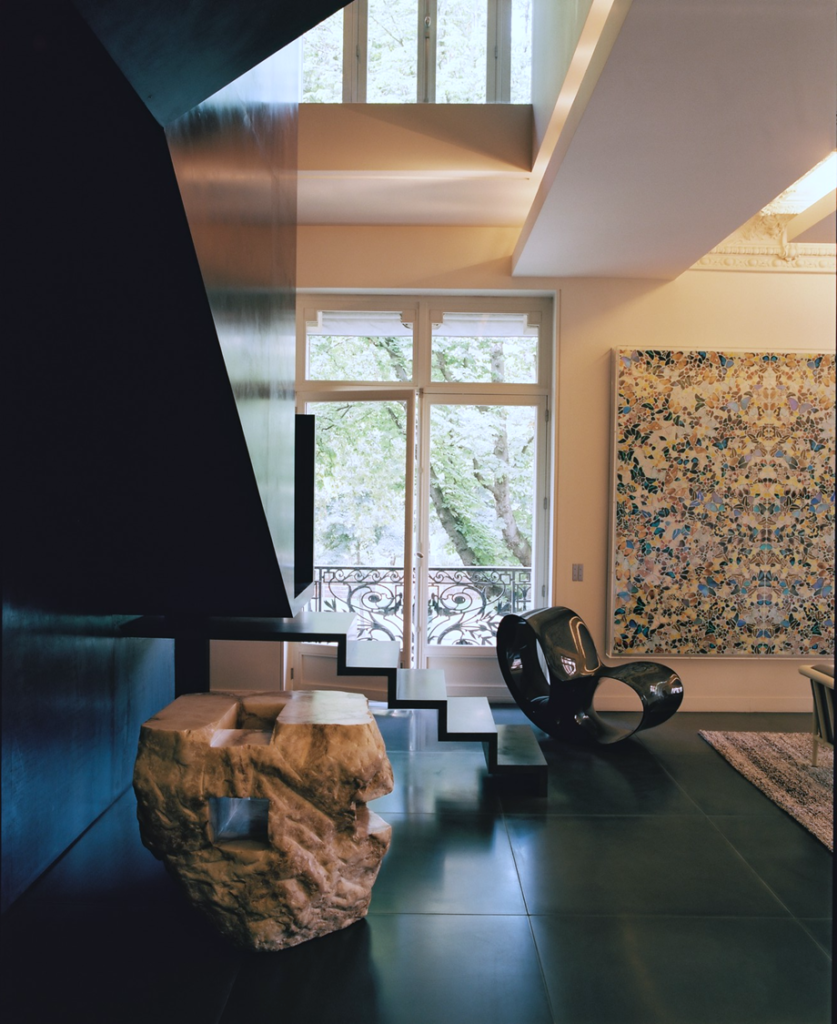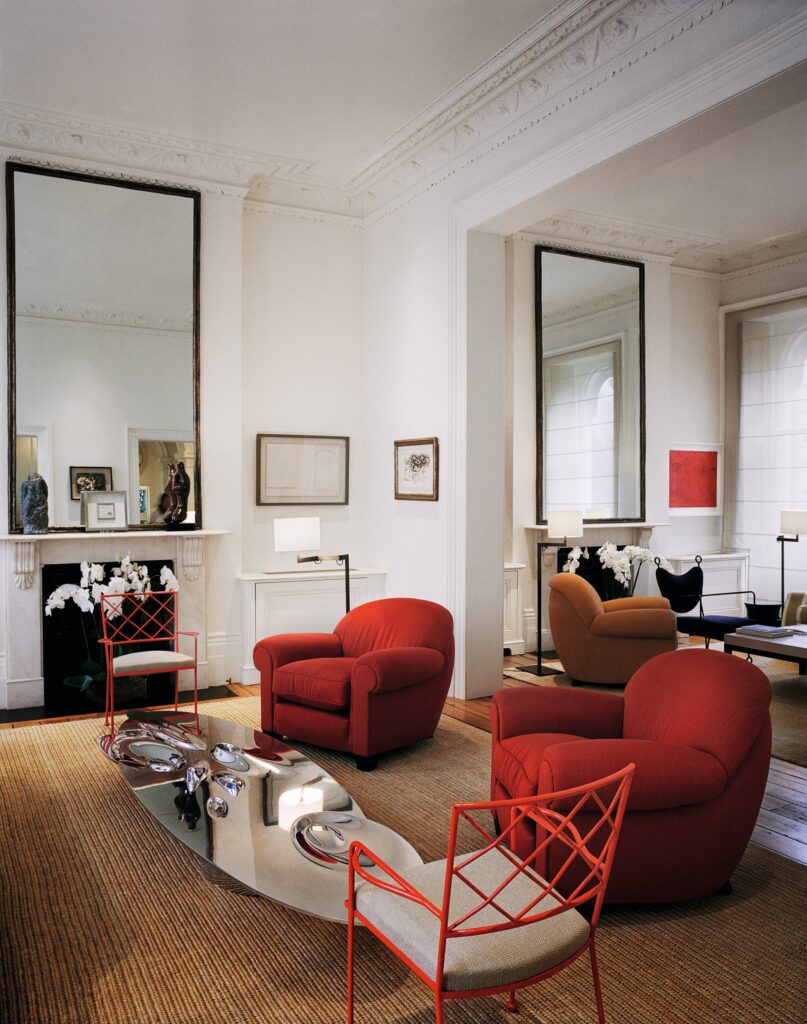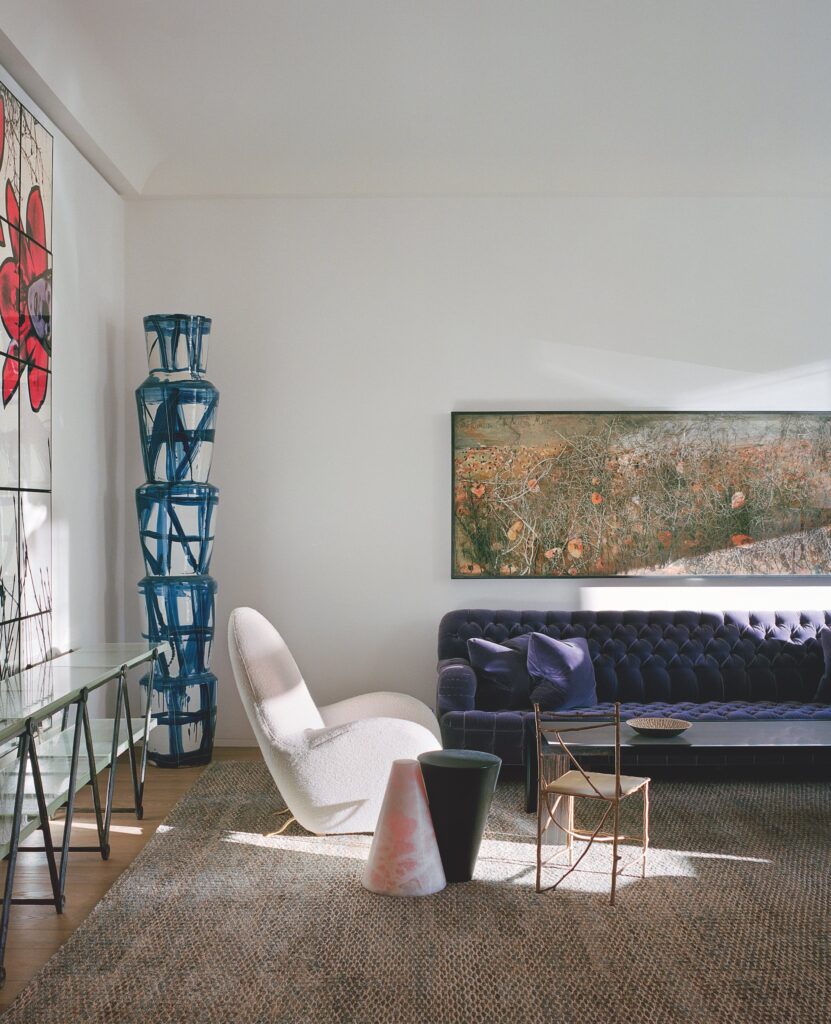
“Grange’s décor cannot be explained; it is the Grange style.” — Pierre Passebon
Life partners Pierre Passebon of Galerie du Passage in Paris and interior designer Jacques Grange met 35 years ago and forged one of the most spectacular creative relationships in the world of design. The duo’s dynamic energy is fueled by their shared sense of curiosity and passion for art history, as well as by their relationships with fascinating people around the world. Designed by Grange, Passebon’s house in Paris is the testimony to their harmonious connection and a laboratory for their adventurous tastes, exemplifying Grange’s signature French elegance unbound from all rules. In Grange’s hands, contemporary baroque is at home next to mid-century modern and tribal art. He was the recent guest in the Interior Design: The Legends series and our talk came to celebrate his new monograph.
After graduating from the École Camondo, Grange interned for Samuel and watched some of the most exciting interior projects of all time come to life, including the restoration of the Grand Trianon at Versailles, as well as the homes of Edmond de Rothschild, Valentino Garavani, and Jayne Wrightsman. From Samuel, he learned the alchemical art of mixing the historical with the contemporary, mastering the orchestration of harmonious and balanced visual symphonies. He was also introduced to major talents: Diego Giacometti, Guy de Rougemont, César, and Philippe Hiquily, whose furniture continues to star in his interiors to this day.
Grange has formulated a signature look over the years, one that cannot be defined in stylistic terms but can be easily recognized. As his friend, gallerist Alexandre Biaggi, encapsulated: ““Jacques creates houses which are the absolute essence of international elegance and French art de vivre. He is much more than an interior designer. His experience with the art market and his incredible sensibility drive him to be an amazing art advisor.” This enigmatic look is highly sought after by prominent people of taste. Art collectors, glitterati, and movie stars seek out his services to bring art into their everyday lives. But make no mistake, Grange’s homes are not museums. While filled with art, they are unfussy, highly livable, and exceedingly comfortable.
Many of his clients have become lifelong friends. He loves speaking about this aspect of his life, and the mutual influence that runs through these relationships. Marie-Laure and Charles de Noailles, for example, who famously lived in a Parisian home that had been decorated by Jean-Michel Frank along with a modernist villa by Robert Mallet Stevens built in the seaside hills of Côte d’Azur. The couple’s penchant for eclectic art masterpieces has never left Grange. With Andy Warhol in the 1970s, he fell in love with Art Deco while exploring the flea markets of Paris. With Les Lalanne, he enjoyed the magic of creative collaboration. With Yves Saint Laurent and Pierre Berge, for whom he created the interiors of their country retreat Château Gabriel in Deauville, completely inspired by French novelist Marcel Proust, he forged a part of his identity. As if that weren’t impressive enough, award winning French actress Isabelle Adjani is his best friend.
Since 1990, Grange has lived in the heart of Paris, in an 18th-century residence with its own special legacy. It was the home of French author and actress Colette (1873-1954), known for her novel Gigi, which was the basis for the 1958 film and the later stage production. “When I redecorate Colette’s apartment,” he said, “I observed the light and the color of the light.” He painted the walls pale gray to accent the views of the adjacent Palais-Royal Garden. This home is the ultimate expression of the Grangian vision, filled with art and effortlessly marrying the simple with the sophisticated; combining old world luxury with contemporary culture. The furnishings are fresh, personal, and unexpected, featuring pieces by Frank Lloyd Wright, Jean Royère, Diego Giacometti, Hervé Van der Straeten, Thonet, and more. The dramatic staircase at the center of it all was inspired by the iconic example that Le Corbusier created at Villa Savoye.
Grange recently sold a large portion of his private collection at Sotheby’s Paris. Florent Jeanniard, Head of 20th-Century Design told me: “Jacques has a real eye for furniture, objects, sculptures, and paintings—modern or old. He is very curious, in the best sense, and that’s why he’s as comfortable in a flea market as at important international art fairs.” The auction, consisting of blue chip works by Donald Judd, Henri Matisse, David Hockney, Eileen Grey, Alexandre Noll, and François-Xavier Lalanne made international headlines. He has no regrets for selling his beloved art, he told us.
In sum, what did we learn from Jacques Grange? That the stories of interiors can move you in a magnetic ways, because each is an entire universe unto itself; that impeccable knowledge of the art market is key to crafting refined interiors of soul and depth; that the role of the designer is to be a charismatic leader, tastemaker, and educator; and that dreaming big is the key to fulfilling the dreams of others. All images curtesy Jacques Grange and are featured in the new monograph Jacques Grange, Recent Work. This article was publish this morning in Forum Magazine by Design Miami.
